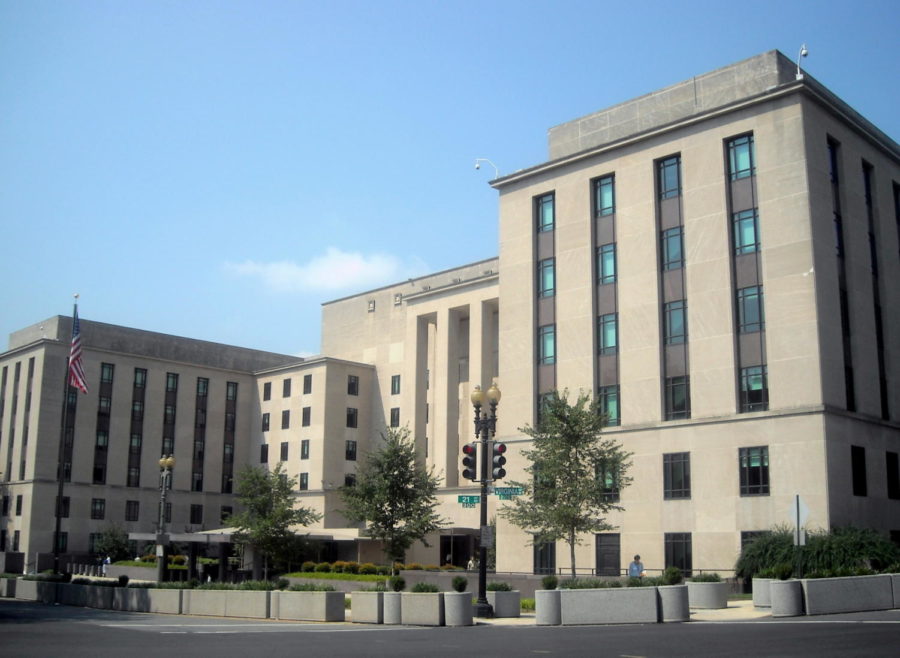State Department experiences short relief from 35-day shutdown
New legislation secures temporary funding
The Harry S. Truman Building is the headquarters of the State Department, and houses many of the senior personnel, including the Secretary of State. Many of these employees had to work anyways without pay. Photo obtained via Wikimedia Commons under Creative Commons License
January 29, 2019
This past Friday, President Donald Trump signed into law a continued resolution that ensured 3 weeks of funding for agencies that had previously not been funded in the longest government shutdown in United States history.
The shutdown has had unprecedented effects on the American people and economy. Over 800,000 workers were left without pay for more than a month, with government agencies such as the Transportation Security Administration, Coast Guard and the State Department receiving no funding. However, the Department of Defense and several branches of the military such as the Army and Navy kept their funding.
In addition, this shutdown has caused an estimated loss of six billion dollars to the U.S. economy, adding on to the controversial five billion dollars that President Trump requested to build a wall along the Southern border of the United States.
The shutdown has caused wide dissent among informed Americans
“As a federal worker who is directly impacted by it, I like to stay as informed as possible on the shutdown. I am constantly consuming news and transcripts that come from the Hill,” State Department employee Catherine Baker said.
State Department workers were very taxed by the shutdown that lasted more than a month, with some having to take drastic measures.
“The shutdown was a huge upset to my life. I went from working 40 hours and commuting about 10, to working zero and nearly never leaving my home,” said Baker. “Even with the diligence to try as hard as I could to not spend a cent while not making money, it was very difficult to survive in DC. I ended up returning to my parents’ home in Appalachia for a good part of the shutdown, where the cost of living is exceptionally lower than DC.”
The Department reopening a short period of time before the agencies came as a relief to Baker, and its presently continued operating status meant many benefits for its employees.
“I was able to return to DC and live my life as normally as one can during temporary funding. I will be able to pay my rent and other bills without dread for having funds to pay the next month,” said Baker. “Too many people, especially non government workers, are now feeling the effects of lack of government services. The issues constituents now face will hopefully push the executive and legislative branches to open the government while they continue this fight over [the wall].”



